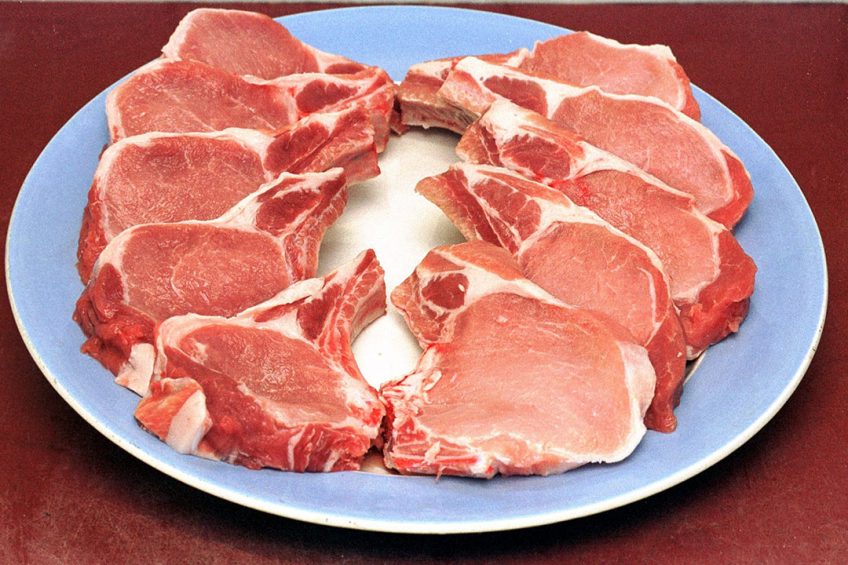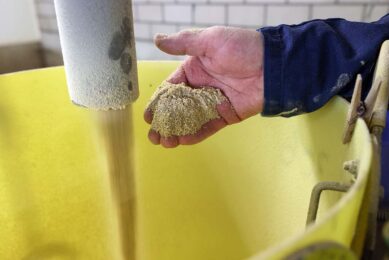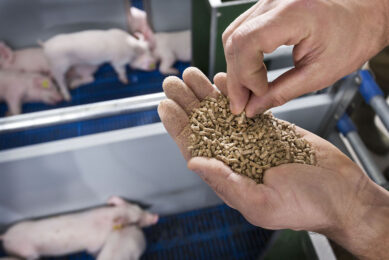Why I sometimes choose to skip my pork chop

We all need to reduce our meat intake substantially – that was one of the messages from a scientific article in The Lancet recently. What followed was a huge amount of criticism in the global agricultural community, as it directly affects everybody’s business. Still, the study’s conclusions deserve a better look. Pig Progress editor Vincent ter Beek explains why.
First things first – what was it exactly that the report discussed? It was authored by the EAT-The Lancet commission, including 37 international experts with a wide variety of backgrounds, including health, agriculture, climate, food policy and sustainability. Keeping in mind that we’ll have to feed over 9 billion people in 2050, they merged all knowledge together to come to a diet that – in their view – is both healthy and sustainable. The result is a diet that does not include a lot of beef, lamb or pork (15 kcal/day), eggs (19 kcal/day), only a little bit of fish (40 kcal/day), chicken (62 kcal/day) and dairy products (153 kcal/day). On top of that, the diet should contain minimum amounts of sugar and fat – and a lot of vegetables, whole grains, fruits and nuts.
Nuts – exactly that was the qualification that summed up most of the reactions in the agricultural business and far beyond. Quite a few people vehemently protested. That varied from professionals making their daily living in the agricultural industry, dietary experts who dismissed the report as ’untested hypothesis with clear risks to human life and health’, those who enjoy having their juicy piece of meat on a plate every day – to simply those who are completely fed up with being told what to do by city based know-it-alls.
Time for a confession in 2019
Yet, I feel it is time to confess something. I’ve decided to cut my meat consumption as well in 2019. All I would like to do is share my reasons.
Over the years I have had the privilege of visiting many pig farms all around the globe. I have met wonderful, hard-working and honest owners of swine farms, who do their best to make a living. Now we don’t have to beat about the bush here, often these farm owners aren’t well paid for the animals they send for slaughter. A matter of supply and demand I hear you say, market conditions, retailers offering meat at prices that have hit the bottom – it’s just how these things go.
Pig farmers deserve better pay
I feel farm owners are entitled to substantially better payment. Not only because pig producers deserve a fair treatment, but also it isn’t just another commodity our industry is dealing with. Pigs are living creatures, they are born, grow and die for our needs. If you want it or not, that makes the result of our business different than e.g. the production of curtains, balloons or cars. We owe it to the pigs to treat them well, as long as they are with us.
The definition of ‘treating pigs well’ varies from country to country. Where one defines it as ‘freedom from hunger and disease’, another thinks of ‘having the opportunity to run outdoors’. For me personally, it has come to mean creating living conditions in which the healthy and thriving pig, rather than efficient management alone, has been top of mind during construction. So conditions where standard treatments of antibiotics are not necessary, in which tail docking can be avoided as much as possible and where the air is pleasant to breathe for both humans as well as pigs.
I’ve also noticed it in my own farm visit experience more than once. While every pig farm has always been interesting to me, the ones I particularly liked were the farms where the animals had the opportunity to run around on natural surfaces, breathe fresh air and where their tails were intact. (I am aware that a plea for outside pigs is not very timely given the threat of African Swine Fever virus.)
My promise: I will pay more for my pork
Sure, you will tell me, show me the money and we’ll produce it. Now that is exactly what I am going to do. I have decided to put my money where my mouth is….. quite literally.
Read also an earlier blog: Pork as luxury product
Now there’s another interesting side to that decision. I know that producing pigs more extensively comes with a downside. The animals require more of everything – more space to grow, more feed to eat, more manual labour. And it will be more expensive too. Many tell me producing pigs more extensively will definitely not feed the world. Certainly not if we will have to feed over 9 billion people in 2050.
Benefits for pigs, producers and environment
I agree. Point taken. Unless… we accept that meat alone doesn’t have to feed the world. It is possible if we would all decide to opt for a – more expensive – piece of meat only once in a while, with a diet supplemented with other sources of protein. That will benefit farm animals (better living standards), the pig producers (higher prices) – and in my perspective the environment as well (less manure and area needed).
With a detour, I conclude, I do agree with some of The Lancet’s conclusions.
 Beheer
Beheer








 WP Admin
WP Admin  Bewerk bericht
Bewerk bericht